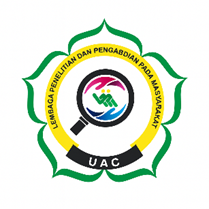Street Vendor Empowerment in Bantul District: Analysis of the Role of the Indonesian Street Vendor Association of Struggle (APKLI-P) Based on the Perspective of Sharia Economics
DOI:
https://doi.org/10.69965/sahwahita.v2i1.90Keywords:
Empowerment, PKL, APKLI-P, Sharia EconomicsAbstract
Based on the latest data from the Central Statistics Agency (BPS) in 2023, around 60.12% of the Indonesian workforce works in the informal sector, indicating the dominance of this sector in the national economy. However, in urban areas, informal sector economic activities, especially street vendors (PKL), often face various challenges that require structured solutions. One of the main problems street vendors face in Bantul Regency is limited business capital, which causes them to be trapped in loan shark loans that are not per Sharia principles. This study aims to analyze the role of the Indonesian Street Vendors Association of Struggle (APKLI-P) in empowering street vendors in Bantul Regency from a sharia economic perspective. This study uses a qualitative approach with a case study method at the DPD APKLI-P Bantul Regency. Data were collected through observation, in-depth interviews with 20 street vendor members, and documentation of empowerment programs carried out by APKLI-P. The data obtained were analyzed using source triangulation to ensure the validity of the research results. The findings show that APKLI-P has implemented various empowerment programs, such as developing culinary areas, providing business opportunities through local events, managing multi-purpose cooperatives, and providing halal certification. The impact of this program is measured through increased income, access to new business opportunities, and significant improvements in the welfare of street vendors. This study also highlights how the application of Islamic economic principles by APKLI-P has succeeded in strengthening social solidarity and creating equality and justice in society. However, this study has limitations in terms of generalizing the findings to other regions, and further research is recommended to test the effectiveness of this empowerment model in different regional contexts.






